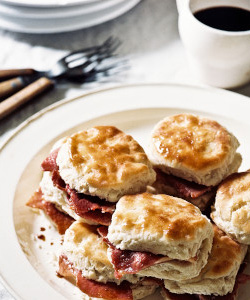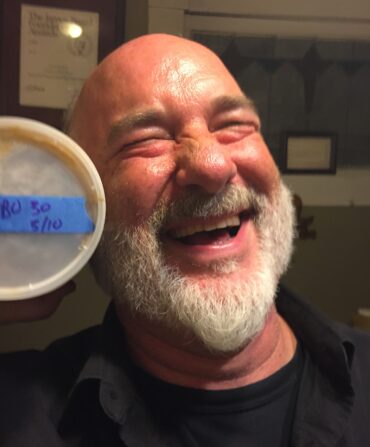As dawn breaks each day along Galveston Bay on the Texas Gulf Coast, Fred McBride—known as Captain Fred to his friends and customers—is already out on the water, checking his crab traps and fishing lines.

McBride is a commercial fisherman, targeting species that other local fisherfolk do not— sheepshead, stone crabs, flounder—and selling his catch directly to fine-dining restaurants in Houston, usually on the very day it’s caught. Chef Aaron Bludorn of Bludorn and Navy Blue restaurants puts it simply: “It’s amazing what he is doing for the community and local fisheries by taking out the middleman and truly giving us the option of dock to dish.”
While fishing has occupied a significant piece of McBride’s soul since childhood, he began his career as a musician. Classically trained on viola, he was an orchestra director and teacher in Houston public schools for eighteen years. “I loved teaching music to the kids,” McBride says. “But I asked myself, what legacy can I grow and cultivate for my son?”

He retired from teaching in 2021, committed himself to commercial fishing, and began building his business. He maintains that there are more similarities between music and fishing than you might think. “To be successful in either,” he says, “you have to be disciplined and methodical, but improvisational, ready to react on the fly.”
McBride is dedicated to sustainable harvesting practices and the stewardship of healthy saltwater populations. He’s carefully considered his niche in the local industry. “I could easily sell my catch to wholesalers,” he says, “but I want to work with creative people. Chefs are like jazz musicians in that they know how to improvise. And I can provide them with local fish that they can’t get from other sources.” Dishes vary with the season, but for example, the Creole restaurant Eunice serves drum, sheepshead, or flounder with blue crab, brown butter, and pecans; and the seafood spot Golfstrømmen prepares fish and chips made with his black drum. McBride’s stone crab claws star on seafood towers and platters around town, including Pier 6 and Little’s Oyster Bar.

While McBride no longer teaches in school, he remains an educator at heart, eager to introduce others to the satisfactions and joys of fishing. Although there’s a venerable history of Black fishing traditions in the South, as far as he knows, McBride is currently the only Black commercial fisherman on the Texas Gulf Coast. He’d like to change that, spreading the word that fishing can earn a living and be a sustainable food source. He’s especially interested in teaching city kids. “I really want them to learn where fish and crabs come from, and what we need to do to make sure they’ll still be around for their grandchildren.”
McBride will take any chef fishing who wants to go—to understand how the seafood they prepare is caught and to simply enjoy the experience. “I want everybody to appreciate what we have going here on the Texas Gulf Coast,” he says.
One such taker: Drake Leonard, the chef/owner of Eunice in Houston. “Captain Fred, his deckhand, and myself set lines out in Galveston Bay one cold January morning,” Leonard says. “The black drum were running and we longlined a couple hundred pounds of mixed-sized drum, and a few sheepsheads too. I saw the care and effort that goes into catching hundreds, if not thousands, of pounds of fish by hand for the restaurants in the Houston area. It makes me, and chefs around the city, think of creative ways to use the different species that are swimming just south of us.” Like a jazz musician, improvising in the kitchen.








